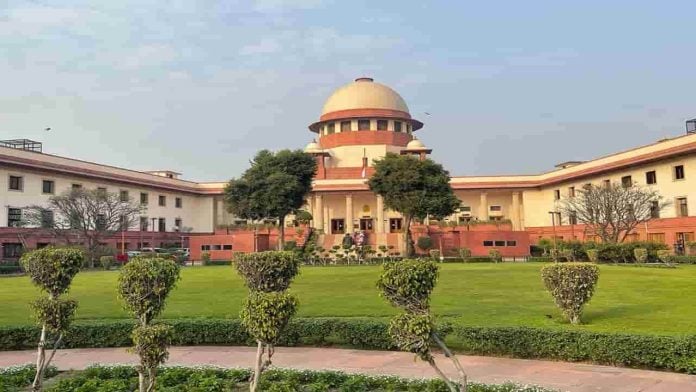The Supreme Court on Wednesday agreed to take up later in the day, a petition filed by the Editors Guild of India over the Manipur police registering FIRs against three members of a fact-finding team of EGI, which recently visited the ethnic violence-hit state and prepared a report regarding the same.
Senior Advocate Shyam Divan mentioned the matter for urgent listing before a Bench of Chief Justice of India (CJI) D.Y. Chandrachud, Justice J.B. Pardiwala and Justice Manoj Misra.
Appearing for EGI, Senior Advocate Divan sought emergent directions under Article 32 on the grounds that senior journalists involved in the case were apprehending arrest.
As per the Counsel, the Editors Guild of India had appointed a fact-finding committee comprising three senior journalists. They went to Manipur and made a report, concluding that local news reports were biased.
Regarding urgency in the matter, Divan submitted that FIRs had been lodged against the journalists and the EGI was challenging two such FIRs.
The Apex Court then directed the petitioners to keep the papers ready and assured to take up the petition after the admissions matters for the day were over.
As per Divan, the fact-finding team had gone to Manipur to examine the media reportage in the state from August 7 to 10. They released a 24-page report on September 2.
It was alleged that Manipur Police filed FIRs against the journalists on the basis of complaints describing the report as ‘false, fabricated and sponsored’.
Earlier on September 1, the Bench of Chief Justice of India D.Y. Chandrachud and Justice J.B. Pardiwala directed the Union of India as well as the State of Manipur to ensure adequate supply of basic essentials such as food, medicines and others to the victims of ethnic violence in the state.
The Apex Court told the governments to explore all options, including air-dropping of ration and removal of blockades, so that there was no denial of basic human facilities to the victims and those affected by the violence.
Senior Advocate Meenakshi Arora, appearing for the judges’ committee constituted by the Supreme Court to deal with humanitarian aspects of the matter, informed the Bench that blockades in Moreh region of Manipur were preventing people from getting basic ration. She apprised the Apex Court about the outbreak of measles and chickenpox in some relief camps.
The Bench ordered Solicitor General Tushar Mehta to send a formal notice of nodal officers appointed to the Committee, so that the Committee could reach out to the government directly.
Senior Advocate Jaideep Gupta, representing the respondents, interjected at this juncture and said that the committee could not do anything when it came to the blockades.
Senior Advocate Indira Jaising apprised the Apex Court about the scarcity of food in Moreh area due to the blockades. She further said that the committee could not direct the armed forces to remove the blockade.
Noting that removing blockades was a complex and sensitive issue which required careful consideration, as these blockades were often set up by local individuals or groups, the CJI said it was ‘easier said than done’.
The Bench then directed the government to take appropriate steps to address the situation after evaluating the ground realities.
The Apex Court was apprised by another counsel about the blockades affecting other areas, including the National Highway 2, which ran from Dimapur (Nagaland) to Imphal.
The Bench, while noting that the manner in which the blockade was dealt with, would come under law enforcement, said that considering the humanitarian aspect of the matter, the government should explore all options including air dropping, if necessary.
It further directed the Centre to intimate the Court about the steps taken to ameliorate the situation in the next hearing.
Senior Advocate Jaideep Gupta said that an IA was filed pertaining to the demolitions in the state. The Bench directed for a copy of IA to be served to the SG so that he could take instructions from the State of Manipur in the matter.


